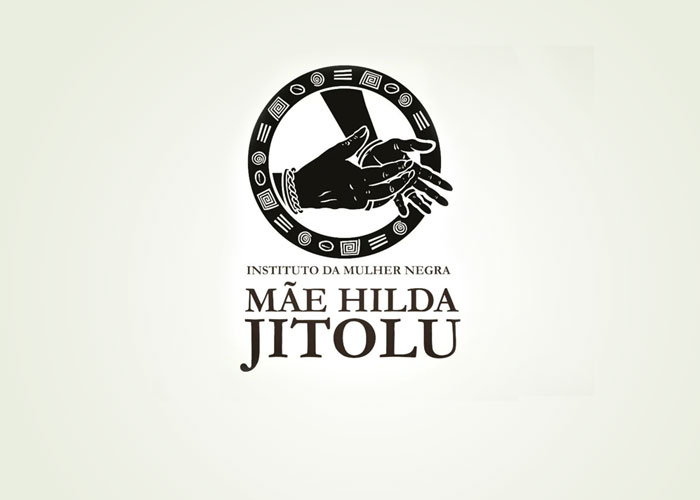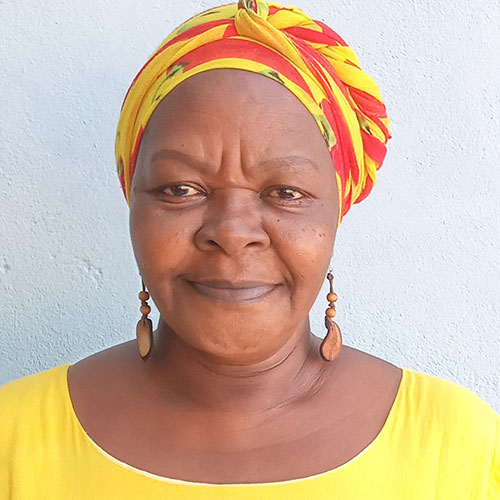Centro Cultural UNICA: faith, culture and art meet in Rio de Janeiro
The UNICA Cultural Center (União Umbandista Luz Caridade e Amor) offers spiritual and social assistance, as well as culture, and other projects


The Centro Cultural UNICA (União Umbandista Luz Caridade e Amor) – UNICA Cultural Center – offers spiritual and social aid, as well as culture, art, and other programmes. The headquarters, located in Rio de Janeiro at Rua Sacadura Cabral, 109, Saúde, is a large and friendly facility where everyone lives in harmony.
The 60-year-old Sara from Rio de Janeiro, director of the centre, explains she lived in Bahia for 14 years before events compelled her to seek medical attention. She was undergoing a psychotic break, according to the diagnosis. During this time, a friend invited her to a session at a Terreiro de Umbanda. But, before then, Sara was a member of Seicho-No-Ie and was not familiar with faiths of African heritage. Therefore, she was wary, with some hesitation, and almost turned down the offer. But in the end, she chose to go, believing that “even if it didn’t do any good, it wouldn’t do any harm either.”
Sara noticed that her head had stopped spinning, she was more concentrated, and she felt better shortly after going to the Terreiro. She learned that it was not a psychotic break at that point. The symptoms were her mediumship manifesting itself, which needed to be worked on. Despite the difficulties and fear of being exposed, she grew to understand those occurrences spiritually over time.
Even so, Sara still had worries associated to being in the Terreiro. So, intending to leave, she started studying quantum physics and metaphysics. However, even after beginning her studies, she decided to stay.
Sara explains why she chose this path in the interview below, and she currently serves as a leader in an institution that promotes light, generosity, and love.

Neuza Nascimento: According to your report, your intention when studying quantum physics and metaphysics was to get away from Umbanda. What caused you to reconsider?
Sara: I had a surprise during my studies. Because, in fact, they based everything that happened in the Terreiro. I acquired knowledge that made me change my mind. As a result, I stayed and fell in love with Umbanda.
Neuza Nascimento: How did you get started in Umbanda?
Sara: I started out of need, and after a while, I began to feel better, until I fell in love. When I went to the sessions, my head cleared up. So, I wondered, “What is this?” “How can that be?” says the author. I felt better after breathing a small bit of cigar and pipe smoke, but I still didn’t comprehend. How does taking an herbal bath make me feel well? When I first began studying science, I saw that there was a solid foundation. That was truly unique. It’s been 20 years; I dedicate to myself and to others who seek help and experience the same misery that I did. We all come into this world with a mission, and I consider mine as social or spiritual compassion. Things began to happen because of this path.
Neuza Nascimento: When did the idea of creating and running a Terreiro de Umbanda come about?
Sara: Nanã (Orixá) gave me the terreiro. People insisted that I open a terreiro in 2016, but I resisted since I lacked the necessary funds. However, I believed that the spiritual realm was in command. The terreiro was done in two months!
At the time, the address was different. And I went on, despite my reservations about running the place, because, although being an adept of the religion, I had never done anything like this before.
Neuza Nascimento: What solution was found for the Terreiro management?
Sara: My Caboclo and Preto Velho calmed me and promised to carry out the management. I trusted them, and things began to happen; the place is now 5 years old. Since then, I’ve been following their instructions. I follow everything to the letter because I know it would not have worked out without the aid of the spiritual world.
Neuza Nascimento: Does the facility receive consistent financial support?
Sarah: No, it does not. Everything is accomplished via the willpower of the people, the collaboration of the terreiro’s mediums, and love for others.
Neuza Nascimento: How does the terreiro make ends meet?
Sara: We can support ourselves through donations; the mediums in the terreiro donate a monthly fee, and students from social projects with financial constraints also contribute. In addition, we have a canteen and a handicraft shop where some members of the group sell their work, a portion of which is destined for the terreiro. We organise raffles for donated products to collect money, and we also have the Optchá! Thrift store, which features apparel and accessories obtained through donations. In addition, we have a coworking space. In this method, we cover the placee’s fixed expenses, such as rent, electricity, gas, and IPTU. And, because we have that right, we requested the IPTU exemption to help with the costs.
Neuza Nascimento: Do you have a team?
Sara: There are currently 101 mediums in the terreiro. Everyone is aware that they have obligations and responsibilities to fulfil, and the activities are assigned based on their ease of completion. I believe that this is the best way to work.
Neuza Nascimento: Is anyone compensated?
Sara: Yes, we do need someone to look after the place during the day. This person is usually one of our mediuns. However, when there is a possibility, we compensate them because the terreiro is here to support its members. Brazil is the only country where volunteer labour is not compensated.
Nascimento Neuza: Please list all of Centro Cultural UNICA’s (UNICA Cultural Center) activities and social programmes.
Sara: The following are the Centro’s activities:
- Spiritual Work;
- Spiritual Care;
- Holistic Therapy;
- Reiki;
- Barra de Acesso
- Shamanic Therapy;
- Massage Therapy;
- “Sagrado Feminino” Conversation Circle;
- Therapy.
Neuza Nascimento: What are the social projects?
Sara: Social projects were in the plans of the terreiro from the beginning; it had a spiritual orientation. At the time, I was spiritually asked to take care of children. So, that’s how activities came about. These are our projects.
- Jiu-Jitsu;
- Drum and atabaque classes;
- English classes;
- Annual feast of São Cosme and São Damião;
- Laying Kit distributed annually to 25 pregnant women in vulnerable situations;
- Legal assistance;
- Food handouts;
- Rescuing drug addicts.
Pointing out that the projects are aimed at all ages.
Neuza Nascimento: Are the residents of the region involved with the UNICA Cultural Center?
Sara: Yes, many seek spiritual consultations. And they help with financial and clothing donations in addition to buying raffle tickets. Donated clothes are sold at the Optchá! thrift store.
Neuza Nascimento: What are your biggest challenges?
Sara: It’s hard to do everything without regular financial support because of how unpredictable things are. People who are not involved with our operations think that we are rich because we are well located and have great space. But we have a lot of struggle, campaigning, raffles, willpower, love, and a lot of faith and trust. It’s believing in the invisible.
Neuza Nascimento: What were your biggest victories?
Sara: The victory began in 2016, when setting up a terreiro in two months required only the willpower, collaboration, and love of everyone involved. Victory is here despite the pandemic, which is not over yet. It really is a miracle. Victory is continuing to have faith and believing that we can co-create with the strength and cooperation of the group. I don’t do things alone; the Centro is not mine; I just direct it and pass on the information I receive from the spiritual plane. The greatest victory is teaching.
Neuza Nascimento: How was the Terreiro in 2020 and the beginning of 2021?
Sara: During the peak of the pandemic, there was no spiritual care. We received notice that something would happen on March 20, 2020, but we did not know the nature of the event. Currently, we have already resumed services, but with restrictions, such as reducing the number of people assisted.
Neuza Nascimento: Do you currently have a future project in mind?
Sara: Yes, we intend to support women in a state of deprivation of liberty through visits to women’s prisons. We’re trying to get accreditation for that. A dental office is also being set up to assist the general public on a paid basis, with a percentage allocated to help with the Centro’s expenses. And one day of the week will be reserved for free care for needy children. In addition, we are setting up a barber shop in partnership with the Centro de Acolhimento Provisório, a city hall project that shelters homeless people at night and is located in Praça Mauá. In this centre, haircuts are taught, and workspaces are made possible. As part of the partnership, a hall will be set up here, and renting the space will serve as yet another form of sustainability for the Terreiro. It’s an exchange. Finally, we are setting up a tailoring and sewing workshop for the mothers of Jiu Jitsu students, generating an alternative source of income for them.
Neuza Nascimento: Does any institution provide the items for the food handouts?
Sara: We have a partnership with Ação da Cidadania. In addition, mediums, and friends of the terreiro also collaborate. We make donations to people directly, to groups, to residents of the occupation near here, and to other institutions—such as evangelical churches, for example. We receive food donations, set up, and deliver. During the pandemic, this practise was accentuated, but we always did it.
Neuza Nascimento: Would you like to add anything?
Sara: Yes, I’d like to say that one of the reasons I opened the door was to reflect on what I came here to do. I discovered that we cannot pass through it without a purpose. This space is for talking about Afro-American culture and religions of African origin, to remove some of people’s prejudice and make them understand that the bad things we hear about them are not true. We must make people understand that Exu is not the devil; we have to show what work is like, what Umbanda is, and what these religions really practice. Our doors are open to anyone who wants to visit us, get to know Umbanda, and see that practising this religion is all about love.
You are also invited to visit our canteen, appreciate the works of art for sale, and honour our Optchá! thrift store, and, if you feel like it, participate in our spiritual events.
If you are interested in helping in any way, please contact us using the links below.
App
E-mail: iacyarahelena@gmail.com
To give financial support: Pix – 29274499000107





